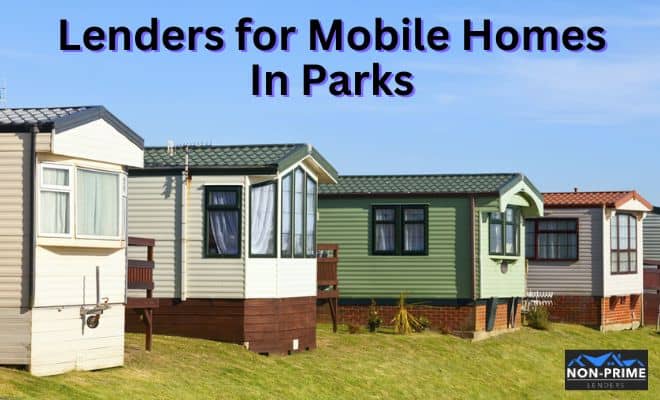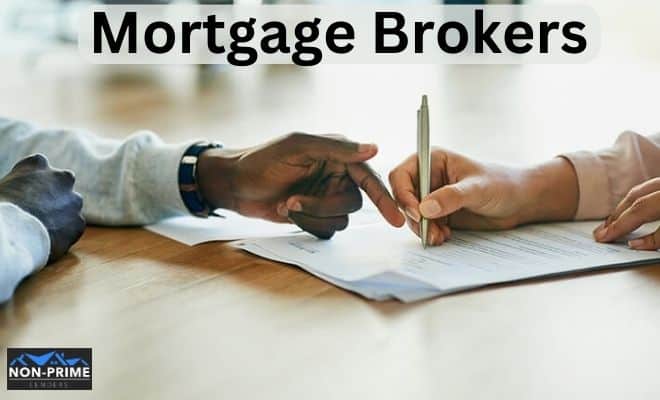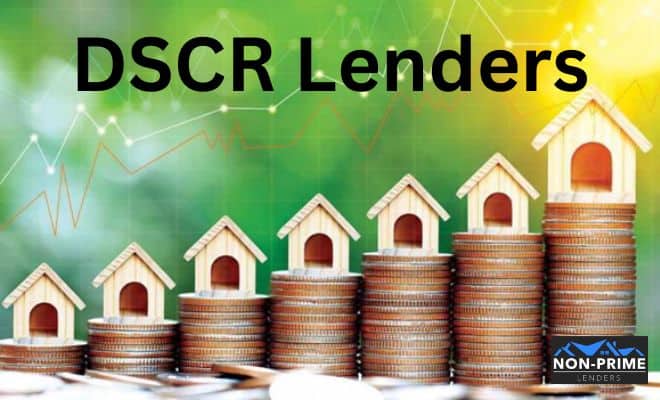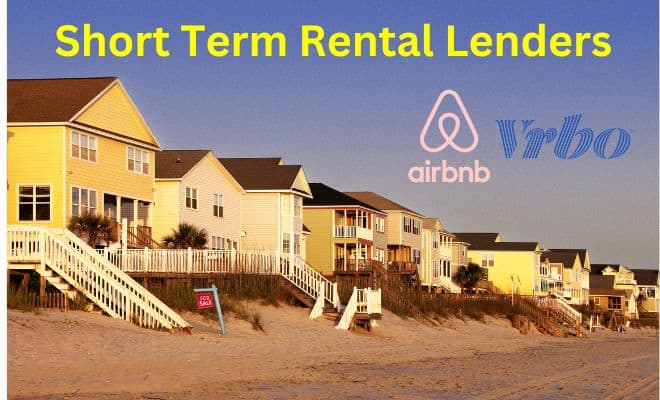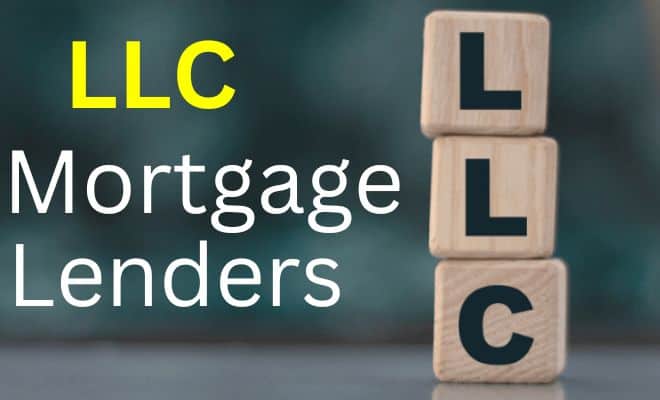Buying a Home on Leased Land
In the complex labyrinth of real estate purchasing, one path often overlooked is acquiring a home on leased land. With increasing property prices and shrinking available spaces, this once obscure option is now scaling the ladders of popularity. One of the challenges is finding lenders for mobile homes in parks who can help you to finance your purchase.
We believe it is just as important for you to understand what it means to purchase a home on leased land before sharing the financing options with you. This ultimate guide sheds light on the critical intricacies of buying and financing a home on leased land – an eye-opening revelation for those seeking to own their dream dwelling without breaking the bank.
When buying a home on leased land, it is important to consider factors such as the length of the lease, the terms of the surrender clause, monthly costs, including the land lease fee, mortgage options, and whether renting may be a better option.
Additionally, evaluating the potential risks, such as difficulty reselling and escalating lease payments must be considered. It is advisable to consult with a real estate professional and lender who both specialize in leased-land properties to ensure a well-informed decision.
Click to speak with a lender who can help
Understanding Leased-Land Homeownership
I have over 35 years of experience in the real estate industry and have educated many consumers on how to purchase a home on leased land.
Leased-land homeownership is a unique option that offers an alternative way to own property. In this arrangement, you own the home while leasing the land on which it sits. This can be an attractive option for those seeking more affordable housing or who want to avoid the responsibilities of outdoor maintenance typically associated with traditional homeownership.
When you purchase a home on leased land, you enter into a lease agreement with the landowner or the entity managing the land. This lease specifies the terms and conditions of using the ground, including the length of the lease and any associated fees. Carefully review and understand these terms before deciding.
One key consideration when it comes to leased-land homeownership is the surrender clause. This clause stipulates what happens to any improvements made on the property, such as structures or landscaping, if the lease expires or is terminated.
Typically, in such cases, all improvements are surrendered to the landowner without compensation. Therefore, it’s essential to consider this risk when evaluating whether buying a property on leased land is the right choice for you.
Now that we have a basic understanding of leased-land homeownership let’s explore the different types of leased-land properties you may encounter.
Types of Leased-Land Properties
There are various types of leased-land properties available in different regions and communities. Understanding these options can help you decide when buying a home on leased land.
One common type is leasehold condos, where residents own individual units within a condominium complex but sit on leased land. These properties often come with amenities such as association pools and tennis courts, which are maintained through homeowners’ association (HOA) fees paid by residents.
Another type of leased-land property can be found on Native American reservations. These properties offer affordable housing options, and the leases are generally long-term, spanning several decades. It’s important to note that each reservation may have unique regulations and requirements.
Leased-land retirement communities are also worth mentioning. These communities cater to older adults and offer various amenities and services tailored to their needs. The leased land arrangement allows for more affordable housing options while providing access to community features like recreational facilities or healthcare services.
Lastly, trailer parks or manufactured home communities provide an option for individuals seeking affordable housing in a community setting. In this setup, you own the manufactured home but lease the land on which it is situated. This option often offers a lower entry cost compared to traditional homeownership.
For instance, imagine you’re a retiree who wants to downsize and live in a quiet community with access to amenities and healthcare facilities. A leased-land retirement community could be an ideal choice as it provides affordability, convenience, and a sense of community tailored to your needs.
Understanding these different types of leased-land properties can give you a better idea of the options available when considering purchasing a home on leased land.
The Rights and Obligations of the Homeowner
When purchasing a home on leased land, you must understand your rights and obligations as a homeowner. While you may not own the land, you still have certain entitlements and responsibilities. Let’s delve into the key aspects that define your position as a homeowner on leased land.
First and foremost, as a homeowner, you have the right to occupy and utilize the property according to the terms of your lease agreement. This includes residing in the house, making modifications or improvements with the consent of the landowner, and enjoying any amenities or community facilities that may be available.
However, it’s important to note that certain restrictions may apply. For example, there might be guidelines regarding exterior modifications or landscaping changes that must align with the community’s aesthetic standards. These restrictions are usually in place to maintain consistency and preserve property values within the leased land community.
Moreover, while you are responsible for maintaining and caring for your home, including its interior components, fixtures, and systems, there may be limitations on what alterations you can make. Reviewing your lease agreement carefully to ensure compliance with any restrictions is crucial.
Additionally, homeowners on leased land often have financial obligations beyond their mortgage payments. These include monthly land lease fees paid to the landowner or HOA dues for community upkeep. Understanding these financial commitments is essential for budgeting purposes and avoiding unexpected expenses down the road.
Rights and Benefits
In some cases, residents of leased land properties also enjoy certain benefits, such as access to shared amenities like pools, parks, or recreational facilities. These amenities can enhance the quality of life and provide added value for homeowners in these communities.
It’s worth mentioning that these rights come with potential risks and uncertainties. Lease terms can vary widely depending on location and specific agreements. Therefore, it is vital to thoroughly review your lease documents and consult legal professionals if needed to ensure you have a comprehensive understanding of your rights and obligations.
- A 2022 report from the National Association of Realtors indicated that homes on leased land can be significantly cheaper, costing up to 30% less than equivalent properties on owned land.
- According to a 2021 survey of leased-land homeowners by Redfin Real Estate, around 63% of respondents mentioned the difficulty in selling their property as a significant drawback.
- The same report suggested that approximately 75% of homeowners on leased land experienced an increase in their lease payments over five years, with annual gains averaging about 3%.
The Process of Buying a Home On Leased Land
Now that we have explored the rights and obligations involved in owning a home on leased land let’s walk through purchasing such a property. While it shares similarities with traditional home buying, there are some unique aspects to consider.
The first step is identifying and finding a property that suits your needs and preferences. Leased land properties can come in different forms, such as leasehold condos, homes on Native American reservations, retirement communities, or trailer parks. These properties often offer more affordable options compared to traditional homeownership.
Once you have found a property of interest, securing financing is next. Despite being on leased land, you can still obtain a home mortgage. However, it’s important to note that lenders may have specific eligibility criteria and requirements for financing these properties. It’s advisable to consult with mortgage professionals who specialize in leased land transactions to ensure a smooth financing process. More on this topic later in the article.
After securing financing, thoroughly review the lease agreement associated with the property you intend to purchase. Pay close attention to critical details such as the remaining time on the lease, terms of renewal or expiration, monthly costs, including land lease fees and HOA dues, any restrictions on alterations or improvements, and potential escalation clauses for future expenses.
This information will help you decide whether buying a home on leased land aligns with your long-term goals.
Negotiate With The Seller
Upon completing due diligence and feeling confident about your choice, it’s time to negotiate the purchase price with the seller. Comparable sales data for similar properties on leased land can be a helpful reference point during this negotiation process.
Once both parties agree on a purchase price, you will proceed with customary steps in the home-buying process, such as conducting inspections, obtaining title insurance, and finalizing the transaction with a closing.
It’s always recommended to work with experienced real estate professionals who have expertise in leased land transactions to navigate the complexities involved.
While buying a property on leased land can offer an affordable housing option, you should also thoroughly evaluate all aspects of the property and lease agreement. Before deciding, consider the remaining lease term, future costs, and potential risks.
Pre-Contract Essentials
Before diving into the process of buying a home on leased land, it’s critical to understand some pre-contract essentials. These are the factors you should consider and questions you should ask yourself to ensure you make an informed decision.
First and foremost, the lease length is a critical aspect to evaluate. The duration of the lease will have a significant impact on your investment. Shorter leases may offer a lower purchase price but could also pose risks regarding long-term stability and potential resale value. On the other hand, longer leases provide more security but might come with higher upfront costs.
Next, carefully review the terms of the surrender clause. This clause outlines what happens at the end of the lease if it is not renewed or is terminated early. Understanding whether you will need to surrender any improvements made to the property can help you evaluate the long-term value and feasibility of living on leased land.
Conduct thorough research on monthly costs associated with leased land homeownership. In addition to mortgage payments, consider other expenses such as lease payments, homeowner association fees, utilities, and insurance. Make sure you have a clear understanding of these financial obligations to budget and assess affordability properly.
Leasing vs. Buying
Determining whether renting might be a better option for you is also essential. Compare the costs and benefits of leasing versus buying on leased land. Consider market conditions, long-term plans, and financial capabilities before deciding.
Lastly, engage in due diligence by reviewing all relevant documents and seeking legal advice if necessary. Understand the terms and conditions outlined in the lease agreement, homeowners association rules (if applicable), and any restrictions that may affect your use or enjoyment of the property.
Remember that purchasing a home on leased land is a unique form of homeownership that requires careful consideration. By assessing these pre-contract essentials, you’ll be better equipped to decide whether this option aligns with your financial goals and lifestyle.
The Financial Aspect of Buying A Home on Leased Land
As you delve into buying a home on leased land, carefully think through the financial aspect. Let’s explore some key factors you should consider.
One significant advantage of buying a home on leased land is the potential for a lower purchase price than traditional homeownership. Since you don’t own the land, that portion of the value is removed from the equation. This can appeal to those seeking more affordable housing, especially in desirable locations with steep land prices.
Additionally, leased land communities often offer improved surroundings and community amenities. These include access to parks, recreational facilities, pools, or common green areas. Such amenities can enhance your quality of life and provide added value to your investment.
Another aspect to contemplate is the monthly cost structure. While mortgage payments are typically lower due to a reduced purchase price, it’s essential to factor in other expenses, such as lease payments and homeowner association fees. Additionally, these costs are not fixed and may escalate over time, requiring careful budgeting and planning to ensure affordability throughout the lease term.
Know The Property Taxes
Furthermore, evaluating property taxes is essential when considering the financial aspect of buying a home on leased land. In some cases, properties on leased land may have lower property tax rates than traditional homeownership. This can result in substantial savings over time and contribute to the affordability of owning a home on leased land.
However, it’s important to recognize potential downsides as well. One significant disadvantage is the risk of losing equity at lease expiration. Unlike traditional homeownership, where you build equity over time, when a lease expires without renewal or if you decide not to renew, you may lose any equity gained in the building itself.
Additionally, the resale of homes on leased land can be challenging. A limited buyer pool, uncertain future lease terms, and restrictions imposed by the lease or homeowner association can make it difficult to find interested buyers or obtain the desired sale price.
For instance, imagine you purchased a home on leased land, improved the property over the years, and sold it after the lease expiration only to realize that potential buyers were deterred by the obligation to surrender improvements upon lease termination.
Determining the True Cost
When considering buying a home on leased land, try to understand the actual cost involved. While these properties may have lower purchase prices than traditional homes, other factors need careful consideration.
Firstly, let’s talk about the monthly mortgage payment. Due to the lower purchase price of a leased-land property, your monthly mortgage payment is likely to be lower as well. However, you must also pay a significant monthly land lease fee and the mortgage payment.
It’s important to factor in potential cost increases over time. Some leased-land properties may have clauses allowing annual land lease fee increases. This means that your monthly expenses could rise significantly over the long term.
Consider whether there are additional costs, such as homeowner association (HOA) fees for community upkeep. These fees contribute towards maintaining shared amenities and common areas within the leased-land community. Ensure you fully understand what these fees cover and any potential increases they may incur.
Another aspect to consider when determining the actual cost is property taxes. Unlike traditional homeownership, where you own the land, with a home on leased land, you typically do not own the land on which your house stands. As a result, you may enjoy low or no property taxes, depending on local regulations and arrangements of your specific lease agreement.
Overall, while the initial purchase price of a home on leased land may seem enticingly affordable, it’s essential to carefully evaluate the ongoing costs and potential increases associated with renting the land.
Lenders for Mobile Homes in Parks
What you will find out is financing a home on leased land is not easy because most lenders do not offer such programs. The challenge is both conventional and FHA guidelines do not permit the financing of a home on leased land. As a result, you must seek other niche options.
Lenders view homes on leased land as a problem because in the event of a foreclosure, they cannot reclaim the property. Only the the building that sits on the property can be foreclosed upon which makes it difficult for a lender to re-sell at a foreclosure auction.
Chattel Mortgage
One of the best options for financing a home on leased land is a Chattel loan or Chattel mortgage. In this scenario, the lender is willing to finance the purchase of the home only and in the event of a default will claim rights to only the structure being financed.
One of the key elements of a chattel mortgage is the home must be moveable and not secured to a permanent foundation. This is typically what you will find in mobile home parks.
You an expect the down payment and interest rate on a chattel mortgage to be higher than conventional or FHA loans. This is the trade off for the lender who is taking on the additional risk.
How to Apply
Your leased land loan officer will need to review your loan application fully before providing you with a loan approval. They will review your income, credit score and debt and will calculate your debt to income ratio. If your DTI fits within their lending guidelines, you have an excellent shot at an approval.
You should expect the lender to order an appraisal and to factor in the age of the mobile home. They may also make a decision based upon whether it is a single wide or a double wide mobile home.
The home must already be on site at the park. The purchase of a mobile home from a dealer will be difficult as it is often considered to be a construction loan.
We recommend getting a pre-approval and for you to understand the requirements before shopping for a home.
Click to speak with someone about financing a home on leased land.
Legal Implications of Leased-Land Homeownership
When pursuing homeownership on leased land, it is crucial to know the legal implications involved. Understanding these aspects can help you make informed decisions and avoid potential pitfalls.
One major consideration is the duration of the lease. Different leases can vary significantly in terms of their course. Understanding how much time remains on the lease before it expires is important. This information will be essential when planning for the long term and assessing the potential risks of owning a home on leased land.
Another legal aspect to consider is the surrender clause. This clause outlines what happens if the lease expires while you own the house. Some leases may allow for easy transition, while others may require removing the property from the land entirely. Understanding the terms of the surrender clause is vital to avoid any surprises or difficulties down the line.
Additionally, it’s important to research and review applicable local laws and regulations regarding leased-land homeownership. Different regions can have varying rules and restrictions surrounding this type of property ownership, so make sure you know your rights and obligations as a homeowner on leased land.
Lastly, selling a home on leased land can present unique challenges compared to traditional homeownership. It’s essential to consider how market demand and perception of leased-land properties may affect your ability to sell in the future. Lease duration, surrender clauses, and overall market conditions can influence the resale value and ease of selling.
Now that we have explored the legal implications of leased-land homeownership let’s discuss another important aspect – lease duration and surrender clauses.
Lease Duration and Surrender Clauses
When considering buying a home on leased land, analyze the lease duration and fully understand the surrender clause. These two aspects significantly determine your rights as a homeowner and your investment’s long-term viability.
Lease Duration
The lease duration refers to the length of time that you will have the right to occupy and use the land. Leases for homes on leased land can vary widely, ranging from a few years to several decades. It is important to carefully review the lease terms and assess whether the duration aligns with your long-term plans for homeownership.
A shorter lease duration may offer lower upfront costs or monthly payments, making it more affordable. However, it also poses potential risks and challenges. For instance, if the lease expires while you own the home, you may need to negotiate an extension or consider relocating. This could result in additional expenses, uncertainty, and potentially even loss of equity.
On the other hand, a longer lease duration provides stability and peace of mind by ensuring that you can continue living in your home without interruptions. It allows for better planning and eliminates uncertainties about future occupancy. However, evaluating whether the lease term aligns with your long-term goals and responsibilities is essential.
Surrender Clauses
A surrender clause refers to the conditions under which improvements made on the leased land must be surrendered or removed at the end of the lease term. Modifications can include structures like homes, garages, or landscaping you invested in during your tenure.
Considering the requirements outlined in the surrender clause before purchasing a home on leased land is essential. Some leases may require you to remove all improvements at your own expense when the lease ends. This provision can significantly impact your overall cost and effort when transitioning from one dwelling to another.
Other leases may provide more flexibility by allowing you to negotiate with the landowner or transfer ownership of improvements. You must fully understand the specific terms of the surrender clause and assess whether they align with your plans and preferences.
To illustrate this, let’s consider an example. Imagine you purchase a home on leased land and invest in expensive landscaping and other improvements. However, when the lease ends, the surrender clause requires you to remove all those improvements at your own expense. This could result in a substantial financial burden and potential loss of value.
It is advisable to consult with legal professionals specializing in real estate transactions to thoroughly understand the lease duration and surrender clauses before making any decisions. They can review the terms, explain potential implications, and guide how to protect your interests as a homeowner.
Frequently Asked Questions
How do I qualify for a loan to buy a mobile home in a park?
Qualifying for a loan to buy a mobile home in a park is virtually the same as qualifying to buy a home on land that you will own. The difference is the lender may also have very specific requirements for the mobile home itself including its age.
What are the interest rates for mobile home park loans?
You can expect the interest rates for mobile homes in parks to be slightly higher than conventional rates.
Each lender may have specific requirements for the park when applying for the loan including its insurance coverage.
Lenders do require a down payment for mobile homes in parks and it may be higher than what you may get with an FHA loan.
You can refinance your mobile home with any lender who is willing to finance a home in a park.
You can get approved within 24-48 hours and funded in less than 30 days.
You should expect the lender to require full documentation to include pay stubs, bank statements, tax returns, and W2s.
You may find loan terms of 30 years, 15 years, and some lenders only offer adjustable rate mortgages.
Relevant Facts About Buying Mobile Homes on Leased Land Parks

